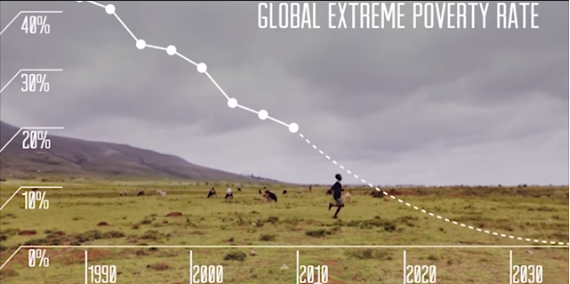 Extreme Poverty: Choices via USAID
Extreme Poverty: Choices via USAID
Panel Recap: ACCOUNTdown to 2017
On Tuesday, the Modernizing Foreign Assistance Network (MFAN) hosted the event ACCOUNTdown to 2017: Strengthening a Bipartisan Legacy of Modernizing Foreign Assistance, with key remarks given by Representative Ted Poe, The Honorable Richard G. Lugar and MFAN’s Co-Chair, Carolyn Miles. The primary dialogue centered on how aid donor countries and their partners could reform and necessitate international standards in order to guarantee aid effectiveness.
In addition to these speakers, a panel followed that featured fellow prominent leaders in the development of foreign aid policy. Moderated by MFAN’s Co-Chair, George Ingram, he was joined by the State Department’s Daniella Ballou-Aares, The Honorable Eric G. Postel, Millennium Challenge Corporation’s Nancy Lee, and the Center for American Progress’ John Norris.
Referring to MFAN’s 2014 policy agenda, “The Way Forward: A Reform Agenda for 2014 and Beyond,” the panel discussed the current outreach of aid distribution. According to the speakers, two indispensible components when it comes to aid development are transparency and open data. Rather than just relying on promises of increased aid, there has to be an open data framework that holds countries accountable to follow through with their commitments to their partner countries. By establishing a sustainable framework of transparency and accountability in international development policy and practice, then citizen-driven political and social change will have more room for success.
MFAN’s new campaign, ACCOUNTdown to 2017, is being launched to keep track of the progress made towards strengthening the accountability and country ownership of U.S. foreign assistance. It was suggested that records should document how partner countries allocate the aid they receive. However, it is important to consider how even major donor parties such as the EU and the US have been criticized for making aid information inaccessible to the countries they sponsor.
In order to combat this evasion, by the end of 2015, donors are highly encouraged to fully implement the International Aid Transparency Initiative (IATI) Standard. The IATI is an open data framework that allows for the timely publication of aid distribution. To follow through on commitments to the global economy, state actors who disregard IATI will be provided with the necessary guidance networks to resolve their indiscretions. By adhering to IATI and holding every country accountable to this index, there would be a reference point on how to approach sustainable programs of eradicating poverty, making health care accessible on an international level, and expanding educational opportunities throughout high-need partner countries.
The panel concluded with remarks on how to improve sustainable development post-2015. To ensure the longevity of development, the U.S. will need to reinforce a new attitude towards the effectiveness of foreign aid. Along with Congressionally mandated reporting requirements, new programs, policies and activities should be administered, monitored and evaluated to ensure that they abide to IATI requirements. Fortunately, the State Department recently announced that unclassified foreign aid evaluations will be published and readily available starting in 2015. By taking the initiative to systematically change and publicize the realities of aid diplomacy, the U.S. would be able to mobilize international attention and action to ensure aid effectiveness.
Open sources and more information about development cooperation will help partner countries plan their own resources more effectively and ensure the delivery of tangible social change. However, this knowledge should not just be limited to the heads of state, it should be available to citizens so they will know if their social and political needs are being addressed. When citizens have a clear idea of where aid is going and are informed of the international aid standards that their country must abide to, then this knowledge will give them a greater stake in the development of their country. As a more informed citizenry, they would be able to prioritize attention towards reforming governmental discrepancies that greatly prevent improved economies, political institutions and civil society.






